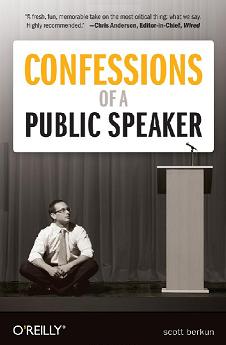Last updated on July 20th, 2022 at 02:10 pm
 This week on my financial mastery journey, I’ve been thinking a lot about the cost of education, especially when it comes to textbooks as I have been looking at getting a Master’s degree.
This week on my financial mastery journey, I’ve been thinking a lot about the cost of education, especially when it comes to textbooks as I have been looking at getting a Master’s degree.
This isn’t going to be my usual long, meandering thoughts about money, which is kind of interesting because the topic of modernizing public education is a particular passion of mine.
But I can keep this one short and sweet because to me the issues are so clear. I believe that in the short term, there’s no money to be saved by providing students with tablets instead of textbooks, however long term, we need to quickly move in the direction of technology.
Sure, money enters in, because there’s not enough to go around if the government keeps spending it the way the government always spends it.
But money’s not the reason why textbooks and instruction need to shake hands with cutting-edge technology.
The unquantified costs, in my humble opinion, and from my personal perspective as the mother of two teenage boys, far outweigh the literal price of textbooks vs. tablets. The question isn’t whether we can save money by moving to digital platforms for school books and instruction. The question is whether we can afford the costs of not doing so, and soon.
For example, how much does boredom cost the individual, the economy, and the world at large?
If you’ve looked at a textbook recently, you know what I mean about boredom. Actually, if you remember your own textbooks, you know what I mean.
A textbook is a textbook, and they are boring. Partly that’s because they’re produced by the committee and based on stuff that everyone can agree on, which makes for some fairly dry reading. Partly it’s because the teenaged brain encounters a 3-pound book that is mostly small type in long paragraphs and thinks,
“Boring.” But never mind why.
Traditional textbooks simply don’t engage. They are instead hauled from school to home and back again, cracked open only upon pain of grounding or failure.
And how much does disengagement cost the individual, the economy, and the world at large?
Big classrooms full of distracted kids who are being asked to receive and regurgitate one-dimensional lesson plans–that’s pretty disengaging. Sure, I’ve had some stand-out teachers in my 18 years of formal education. I can think of three, as a matter of fact. I can think of about five who were absolutely horrible in the classroom. The rest have faded into obscurity. And it’s not their fault. In the first place, not everyone can be inspirational.
In the second place, and more importantly, schooling is so regimental and over-managed that excellence and inspiration have a hard time gaining a toe-hold. And in the third place, the expectations we have of our schools, compared with the resources they have available, are pretty darned demanding.
That all adds up to disengagement.
While we’re at it, how much does the sheer bureaucracy of producing textbooks cost? First, you’ve got the environmental costs: paper–reams of it. Transportation costs of sending crates of books all over hell and gone. Then you’ve got the costs of outdated information (you don’t want to know what it takes to revise a textbook and get it into a classroom). Then you’ve got the governmental hoo-ha and committees and regulations and cronyism and all of its attendant costs.
The book might cost $30. Getting it into the hands of a student costs a lot more.
Boredom. Disengagement. Hide-bound bureaucracy and environmental expense.
Very big costs indeed to shoulder just so we can hang onto textbooks and institutions because they’re what we know. Steve Jobs himself was far from a stellar student. In fact, he was suspended numerous times from high school. He barely made it through a semester at college. Luckily for him (and for us), he had the will to overcome a negative experience of school. He was a lifelong learner and a deeply curious man out of his own will.
But I think we can all agree that he was a rare case.
And that is why looking at this question from a purely financial standpoint does not make sense. Because the institution of schooling as we’ve always understood it is making less and less sense, at its core.
It’s expensive, unresponsive, disengaging, and boring – and it doesn’t have to be.
Jayne Speich
Jayne Speich is co-founder of Business Growth Advocate dedicated to the survival and growth of small businesses in the new era.

Enjoy this special 8WomenDream Guest Contributor story submitted by new and experienced big dreamers throughout the world, edited and published to capture a dream perspective from different points of view. Do you have a personal dream story to share with 8WomenDream readers? Click here to learn how to submit dream big articles for consideration.
Note: Articles by Guest Post Contributors may contain affiliate links and may be compensated if you make a purchase after clicking on an affiliate link.




